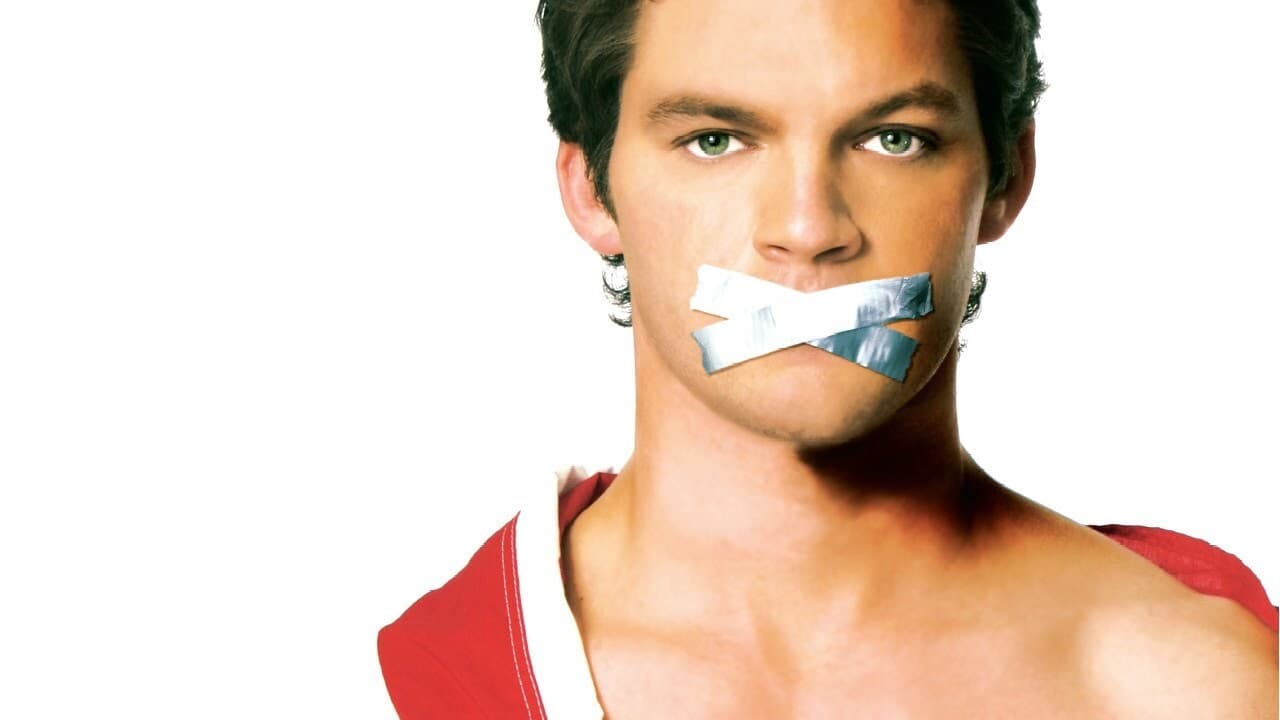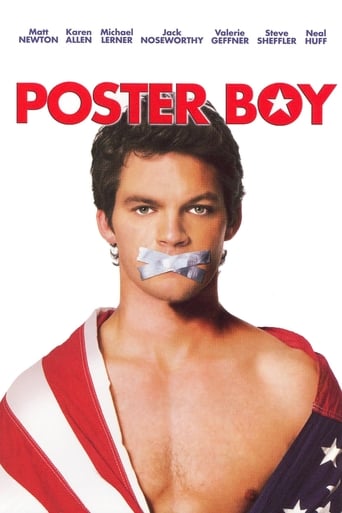

the audience applauded
... View MoreFantastic!
... View Morebrilliant actors, brilliant editing
... View MoreThe story, direction, characters, and writing/dialogue is akin to taking a tranquilizer shot to the neck, but everything else was so well done.
... View MoreThe good: very well acted all around and nice cinematography. The bad: one cliché after another from the over-weight, suspendered right-wing politician with the alcoholic wife to the on-again off-again "relationship" between Anthony and Henry, to the self-destructive HIV- positive roommate who is "saved" by true love. The plot moves from one predictable moment to another, and that's what really ruins this film. The part involving the senator's limo and Izzy is totally unbelievable, especially what happens after. The premise of the story -- that Henry would tell his story to a reporter after it had been plastered throughout the news media -- is also unbelievable. Other aspects are good, particularly the acting by all. Henry is appropriately arrogant, vulnerable and defiant. Karen Allen is great as the long-suffering mother.
... View More"Poster Boy" tries so hard to make a statement—so very, very hard—that I really wished it was better than it is. Henry Kray (Matt Newton), the closeted gay son of a conservative North Carolina senator (Michael Lerner), grudgingly agrees to introduce the senator at a rally held at the fictional New York college he attends, if only so his father will stop smacking him at the breakfast table. But then Henry attempts to escape the duty, high-tailing it to the family's house in Palm Springs. Alas, an eager-to-please young Republican (Ian Reed Kesler) is sent to retrieve Newton and drag his ass back to NYC, though not before Newton can drag him to a gay bar then rent Kesler a shapely call girl for the night. Meanwhile, Anthony (Jack Noseworthy), a former gay activist and recently fired fashion house go-fer, is looking for love but only finding one-night stands while his roommate, Izzy (Valerie Geffner, doing her best Ally Sheedy-in-"The Breakfast Club" impersonation), pops Prozac and snarls at anyone within spitting distance as she tries to cope with being HIV-positive. As is to be expected, all these characters' paths will cross and collide (at times literally) on the way to a Big Moment.Heavy-handed though it is, the script actually has a few good points to make. If only screenwriters Ryan Shiraki and Lecia Rosenthal put as much thought into telling a story as making a statement, especially when they're preaching to the choir. As it is, the narrative is more like a series of contrivances meant to move the characters toward that Big Moment rather than plausible events arising from believable circumstances. Luckily, the movie is buoyed somewhat by fairly solid acting. Karen Allen is a welcome presence as the senator's chain-smoking, heavy drinking wife, even if her Southern accent is a tad bit overdone (conversely, Lerner's Southern accent is almost nonexistent). Director and co-editor Zak Tucker packs the movie with lots of style—from quick cuts to split screens to moody gels and filters—making his movie nearly unwatchable in the process."Poster Boy" also has continuity errors galore. Cigarettes are a particular problem, be it a reporter lighting a half-smoked cigarette in the opening scene, only to be shown seconds later with a fresh one dangling from his lips unlit; or Allen smoking a newly lit cigarette, then shown lighting it a quick cut later. There's also the extra so nice we have to see her passing Newton and Noseworthy twice in the same scene (made worse by the fact that Newton calls attention to her the first time around), and Lerner is shown getting into a limo with his hair a mousy brown when in the rest of the movie it's white. Other distractions: How do Noseworthy and Geffner—one unemployed, the other a bookstore clerk making $7 an hour—afford a chauffeured Town Car? And why the gratuitous female nudity in a movie that features gay men with hyperactive sex lives? Sadly, the two male leads are only fleetingly shown in their skivvies.For all its problems, "Poster Boy" isn't awful, but it made its statements so loudly and so often that I found myself tuning them out, wondering instead whether anyone in wardrobe was going to rustle up something else for Ms. Allen to wear besides that lavender suit.
... View MoreThe drama POSTER BOY begins with such a solid premise, the screenplay could have practically written itself. Perhaps it would have been better if it had. Though certainly well acted by some of the cast and directed by first-timer Zak Tucker with a degree of skill, the film is bogged down by its script; written by Lecia Rosenthal and Ryan Shiraki, it is laden with preachy platitudes and simple-minded stereotypes. You can sense that the writers weren't satisfied with just hoping to pen a good story, they wanted to make it an "important" film, which is all well and good, unless you sacrifice the drama for the dogma.Matt Newton plays Henry Kray, the college boy son of Jack Kray, an outspoken conservative senator facing a re-election vote. The son is gay and very much in the closet -- though apparently quite sexually active; while the father is a "family values" candidate with a history of particularly harsh and homophobic stands on various issues. The clueless Jack bullies Henry into being active in his re-election campaign as a way of reaching out to younger voters.This is a great start; especially if you add in a plot twist wherein Henry unknowingly has a one-night stand with Anthony, a gay rights activist who has a particularly strong dislike for Senator Jack, his politics and his political party. Henry finds himself caught between a father who wishes to exploit his son's youthful and apparently straight-arrow image and a lover who hopes to out him in a cheap attempt at embarrassing the father. This is a nice set up for a potentially complex drama, maybe even an intriguing thriller.Making an admirable effort to establish an Altmanesque feel to the film, director Tucker finds his attempts at realism at odds with the script that seems contrived and phony as the screenwriters fumble the material in infuriatingly inept ways. For one thing, as played with a perpetual snarl by Michael Lerner, Sen. Jack Kray isn't just a conservative, the story goes out of its way to make sure we know that he is (and by extension, all conservatives are) controlling and hypocritical and poor at parenting to boot. He isn't just a conservative, he is "the Nazi of North Carolina" whose campaign seemingly is financed by the tobacco industry. Gay issues aside, it is not surprising that Henry has great animosity toward his dad. And that is the problem: The film quells part of its strongest source of drama from scene one by obliterating even the slightest suggestion of there being a genuine loving bond between father and son. Indeed, the entire film is told via flashbacks as Henry spills his guts to a reporter in what seems to be a spiteful attempt to get back at his father.The film would be much more powerful had Henry been torn between two loves; one, his familial love of his father, and the other, his sexual attraction to his lover. The film would be so much more compelling (and believable) if Senator Kray were to be basically a good man with extreme beliefs or if Henry were to be a true believer in his father's politics, who had to face how it conflicts with the reality of his own sexuality. Or what if Sen. Kray were a liberal whose politically correct rhetoric masks a homophobic mind? And though Anthony and his fellow activists aren't shown in a particularly flattering light either, the story overly stacks the deck to the left by making Senator Kray an oh-so obvious right-wing villain in a tired attempt to make clear the film's already obvious left-leaning bias. The result is weak propaganda and even weaker drama.Worse, all the cheap political shots detract from the film's strongest relationship, between Newton's Henry and Jack Noseworthy's Anthony. Both actors give fine performances, helped considerably by the fact they are given the most realistic characters to play. Newton captures the anxiety of Henry, a guy who just wants to live his life out of the public eye, but finds the comfort that comes from living in the closet comes at a high price. Noseworthy makes credible a character who can't quite separate his sexuality from his politics, which, ironically, is the problem with the film itself. The film's most potent message would have been in exploring this love story rather than in focusing on all the yammering political noise that surrounds these two men.
... View MoreI just saw this at the Outfar Film Festival in Phoenix, and I have to say I was disappointed. The plot had the making of a really engrossing story: The handsome college-age son of a Southern Right-wing Senator is a closeted gay, and is "outed" in an attempt to destroy the re-election of his father. Depending on how the story was scripted, I anticipated feeling sympathy for the son, anger toward those who invade his private life for political gain. Or, the could have scripted so that one feels the "closet-case" got what he deserved. Unfortunately, the way the film was scripted and filmed destroyed any chance of achieving an engrossing story or feeling anything for the characters involved. The story is told in the form of a rather obnoxious reporter interviewing Henry, the senator's son. As he describes the events leading up to his outing, we fade in & out of the scenes. This format has been used successfully several times in the past. It doesn't work this time. By the end of the film I felt as thought I'd watched a bad documentary, just witnessing the events, feeling nothing for the people involved. The other problem is the main characters seem almost schizophrenic in their personalities. One moment Henry is throwing the suit & tie clad Young Republican into the pool; the next moment he's bonding with him and hiring him a hooker when he learns he's still a virgin. We first meet Anthony as an "out there" Act Up! activist; we next see him a sensitive best friend of an AIDS-stricken woman. Next he's telling her that he also had sex with her boyfriend that gave her AIDS; we next see him caring about Henry, whom he had vowed to "out".By the time Henry is outed, I was looking at my watch and waiting for the ending credits. Too bad. Good plot done wrong in about every detail. Better luck next time.
... View More